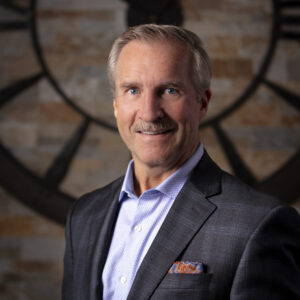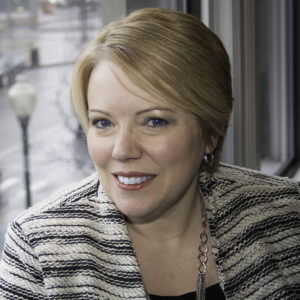 “ . . . and because he was a tentmaker as they were, he stayed and worked with them.” (Acts 18:3)
“ . . . and because he was a tentmaker as they were, he stayed and worked with them.” (Acts 18:3)
Tentmaking ministry is at least as old as the apostle Paul who worked with his hands while he planted churches and discipled. These days, bi-vocational ministry is taking on new life. Often referred to as co-vocational or marketplace ministry, it allows the gospel to permeate the world of work in unprecedented ways.
While pastors minister as a vocation, marketplace ministers do so through their vocation. As one practitioner described it, “marketplace ministry is the willingness to be an active participant in our workplaces as an expression of our faith in Jesus.” Or in the words of another, “it is living out your genuine faith with intentionality in your place of work each day.”
Marketplace ministry can take many forms. Kingswood graduate, Pete Benson (class of 1981), runs Beacon Capital Management in Franklin, TN. He views his work as a mission field, counseling clients and leading his employees. Yohan Mahimwala manages corporate accounts for a large banking firm in Toronto, carrying out his ministry in a corporate environment. Kim Cook, Kingswood alumna, runs a non-profit providing services to the homeless in upstate New York.
The common denominator for these and all marketplace ministers is prayerful intentionality to use their work as an arena for serving God. As David Drury wrote in Marketplace Multipliers: Stories of Faith and Influence in the Marketplace (Wesleyan Publishing House, 2021), they “intentionally focus on integrating faith and work, making disciples, and multiplying the kingdom in the marketplace.”
As expected, ministry in the marketplace has its challenges. Pete Benson identified the challenge of living out the demands of Christ day in, day out, in front of co-workers. “It’s very difficult to ‘hide’ your true self. Believe me, it will come out for everyone to see. If we don’t act the way we should, we need to learn from these experiences, apologize where necessary, and be teachable.”
One also must beware of crossing whatever lines are in place. Evangelism already requires us to be wise as serpents; doing so in the marketplace, with its legal requirements and corporate policies, calls for extra wisdom.
Benson warns of “the tendency to be too heavy handed or pushy in your enthusiasm to share Christ to others. In the marketplace, in my opinion, it’s our job to live out a Christ-like life, and drop seeds in the ground, conscious that God gives the increase.”
Mahimwala concurs, “A unique challenge in the workplace for me is finding appropriate spaces to have spiritual conversations with either spiritually-curious or marginally interested people.” The right approach, he adds, “is to look for opportunities where they present themselves and not feel pressured to preach. Rather to go alongside others and be present until the right time.”
There is also the challenge of time pressures, especially now. “Our work environments have increasingly become ones of productivity, efficiency and burnout,” says Mahimwala. “Taking the time to be available and thoughtful about people over process and product alone is one that needs constant nudging by the Spirit.”
Yet another challenge is helping Christians understand that marketplace ministry is really ministry, not just a way to subsidize vocational ministry. “Unfortunately,” notes Kim Cook, “there’s a gap in understanding the differences between church ministry and marketplace ministry. Both are vital ministries. We’re seeing lives transformed through the power of the Holy Spirit at Open Door Mission.”
Given the importance of marketplace ministry in Kingdom growth, how can the local church come alongside marketplace ministers? According to Mahimwala, one way would be to disciple each Christian to see “every hour of the day, including our workday, as an expression of who we are.” Churches can reinforce that everyone is called to minister, whether as a vocation or through their vocation.
The church can celebrate examples of marketplace ministers in the congregation. Seeing what others are doing helps us understand what we can be doing. This type of validation provides marketplace ministers with, in Drury’s words, “a sense of blessing, release, and anointing.”
Churches can make a special point to pray for those who minister, whether they do so in pulpits, on mission fields or across cubicles. Regular and special times of prayer will not only reinforce the spiritual nature of all these ministries, but will call down Heaven’s assistance.
Because ministry is not easy, wherever it occurs, marketplace ministers need to gather for fellowship and instruction. Benson recommends that churches host a chapter of the group, Marketplace Multipliers (https://marketplacemultipliers.com/), “where like-minded people get support, prayer, and encouragement on a monthly or regular basis with others. Together we share stories and pray for each other and hold each other accountable in our marketplace ministry. Iron sharpens iron.”
Those engaged in marketplace ministry need training. They already know how to do their job; what they need is help knowing how to do ministry while doing their job. According to President Lennox, this is one reason why Kingswood University created its Marketplace Ministry curriculum. “We wanted to strengthen a person’s knowledge, skills, and disposition for effective ministry in the marketplace.” Courses are offered online for both personal enrichment and undergraduate credit. More information is available at kingswood.edu/admissions.
“Tentmaking” is alive and well and promises to be a key weapon in the church’s arsenal as it impacts society in the 21st century.

Pete Benson
Financial Management

Yohan Mahimwala
Corporate Banking

Kim Cook
Non-Profit Mission
